Over the last few years, I’ve wild camped and bivouacked across England from the New Forest to Northumberland and had some amazing adventures. So far, I’ve never been moved on or sprayed with muck by an angry farmer. So, these are my top seven tips for an enjoyable night.
1) Proper Planning
Most of my camping is on long-distance walks, such as my 220-mile hike from Nottingham to Newcastle last year. Although I didn’t know exactly where I would pitch my tent each night, I drew a map of the route in advance, marking every wood or copse. This worked well, except one night when I camped beside a canal and was harassed by a dog at seven in the morning. Ideally, pitch somewhere off the path with cover and avoid crops (they are someone’s living). As dusk approaches, survey suitable spots, and be prepared to retrace your steps if nothing better turns up.
2) Suitable shelter
While you might get away with a bright red Instagrammable tent pitched on top of a mountain, this would attract too much attention in the lowlands. I use a bivvy bag with a tarp or a small dark green trekking pole tent. The tent is now my preference because although the bivvy is lower profile, I’ve nearly been trodden on by a herd of cows and run over by a mountain bike whilst sleeping in it, so I feel the tent gives me more security.
3) Be polite
There is a lot of talk on social media about antagonism between farmers and hikers. However, I’ve met many farmers on my travels who have given me water, good advice and even cakes! If I’m challenged about the pitch of my tent by passers-by, firstly, I explain that I’m hiking from A to B to try and get them on my side, then say I will be gone at dawn and will leave no trace.
If there is a farmhouse nearby and nowhere else to camp, I’m quite prepared to knock on the door and ask permission. I did this recently in The Cheviots and gave a taciturn but friendly farm £10 to sleep in his barn.
4) Avoid animals
My biggest problem with wild camping in England has been cows, dogs and horses, which, as I explained above, is why I use a tent rather than a bivvy bag. I survey the land carefully for signs of animals, including cow pats. Cows are often taken in at night but let out early in the morning when they’ll make a beeline for your tent – “they’re just curious, one farmer told me!”.
I’ve also camped in the New Forest, where there are ponies, but I didn’t find them a problem. My theory is that the more space animals have to roam, the less likely they are to be aggressive. Sometimes, I’ve surrounded my tent with a low barrier of fallen logs and branches at night. Although it wouldn’t stop an animal from trampling me, it’s given me the illusion of protection and, hence, a better night’s sleep.
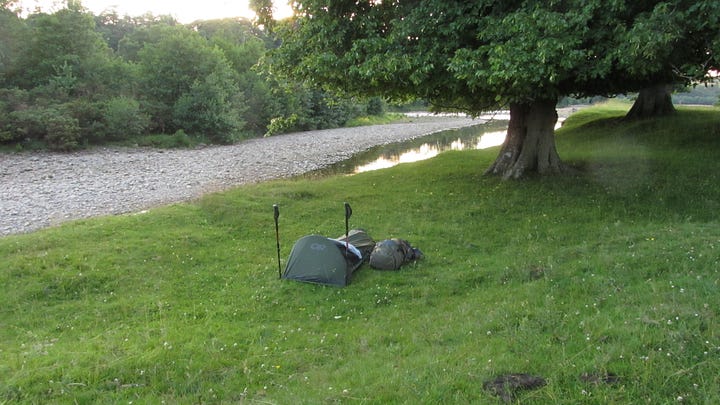
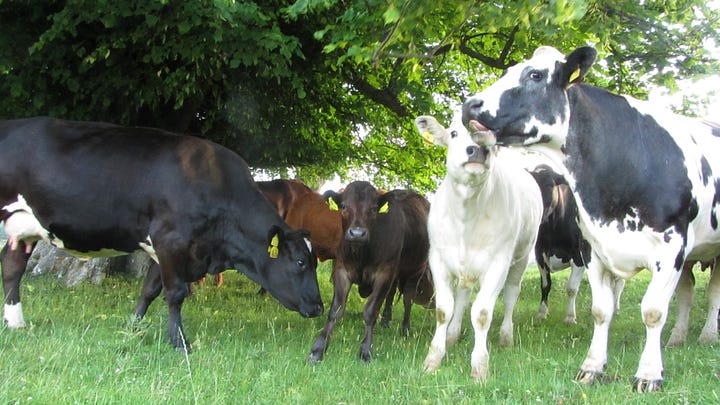
5) Low profile
There has been the odd occasion where I’ve had to camp within the sight of houses or in a country park. In this case, I tend to locate a suitable pitch before dusk, leave to eat my meal elsewhere, and return after dark to pitch my tent under whatever cover is available. My top tip is to use the inconspicuous red light setting on your headtorch if you have one and pack up at dawn.
6) Leave no trace
You know this already, but it has to be said. I check my campsites three times from different angles before leaving, so I’m 100% sure I’ve not left a peg, piece of plastic or tea bag on the ground. If I’ve moved any branches or rocks, I moved them back to their original position.
When walking, I’ll often remove rubbish left by other ‘dirty campers’, sometimes hauling heavy carrier bags over a mile to the nearest bin. In my view, prohibiting responsible ‘wild camping’ because of ‘dirty campers’ is like banning all pet dogs because a minority of people own dangerous dogs.
7) Enjoy yourself!
Despite all the challenges and anxieties of wild camping in England, try to relax and enjoy yourself; I’ve had amazing experiences across England, like a barn owl hunting over my tent, gazing up at the Milky Way at two o’clock in the morning, and spectacular sunsets and rises. Of course, these are all possible without camping, but sleeping out makes them magical.
Born to be free!
You can read about my backpacking trip from Nottingham to Newcastle here
And check out my book Skye Line here

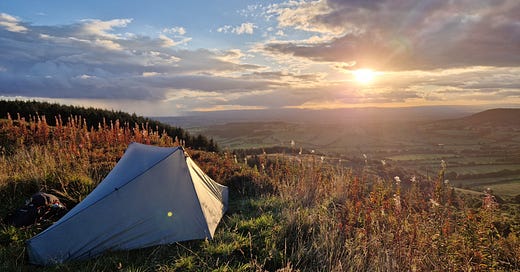




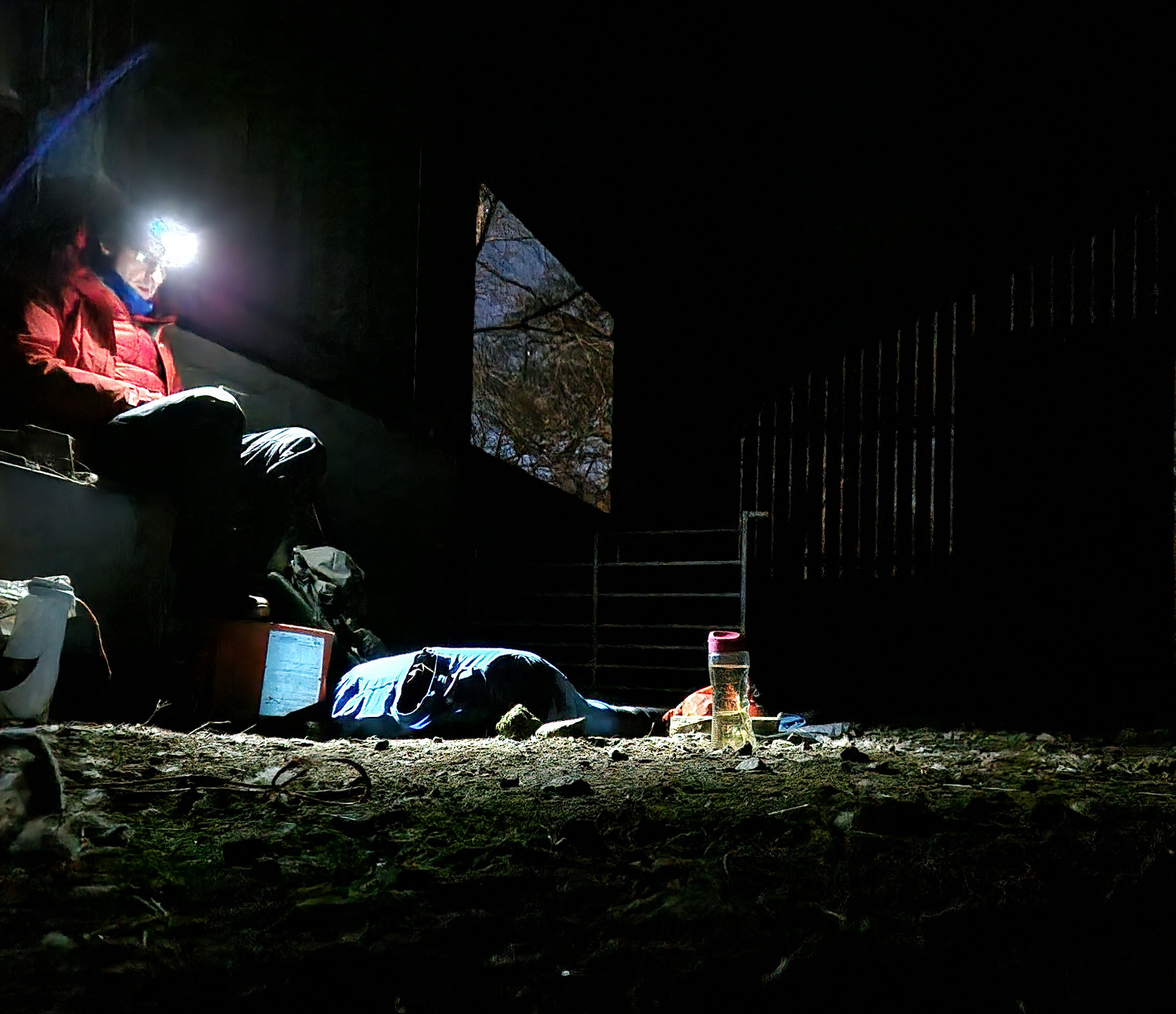
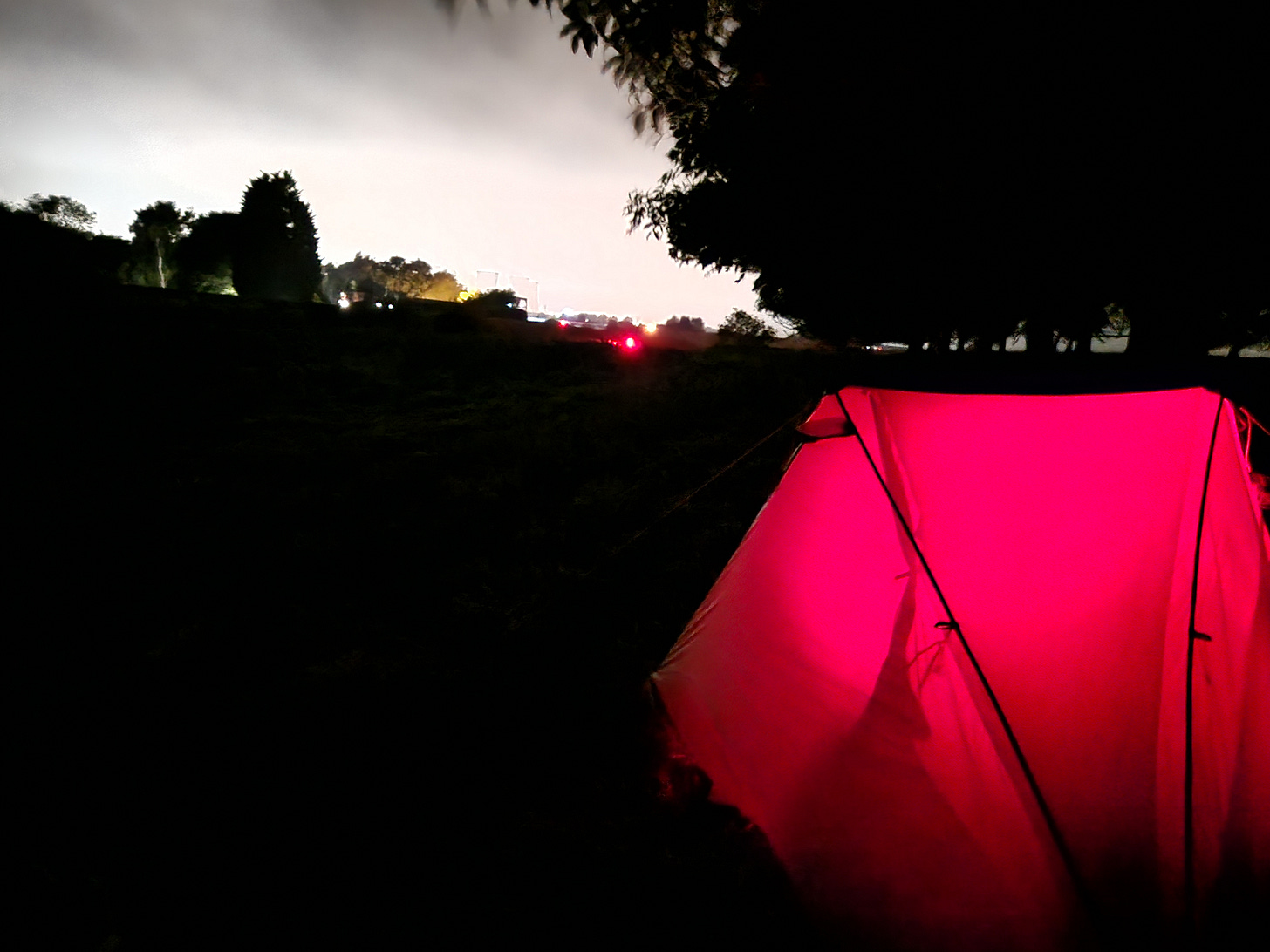
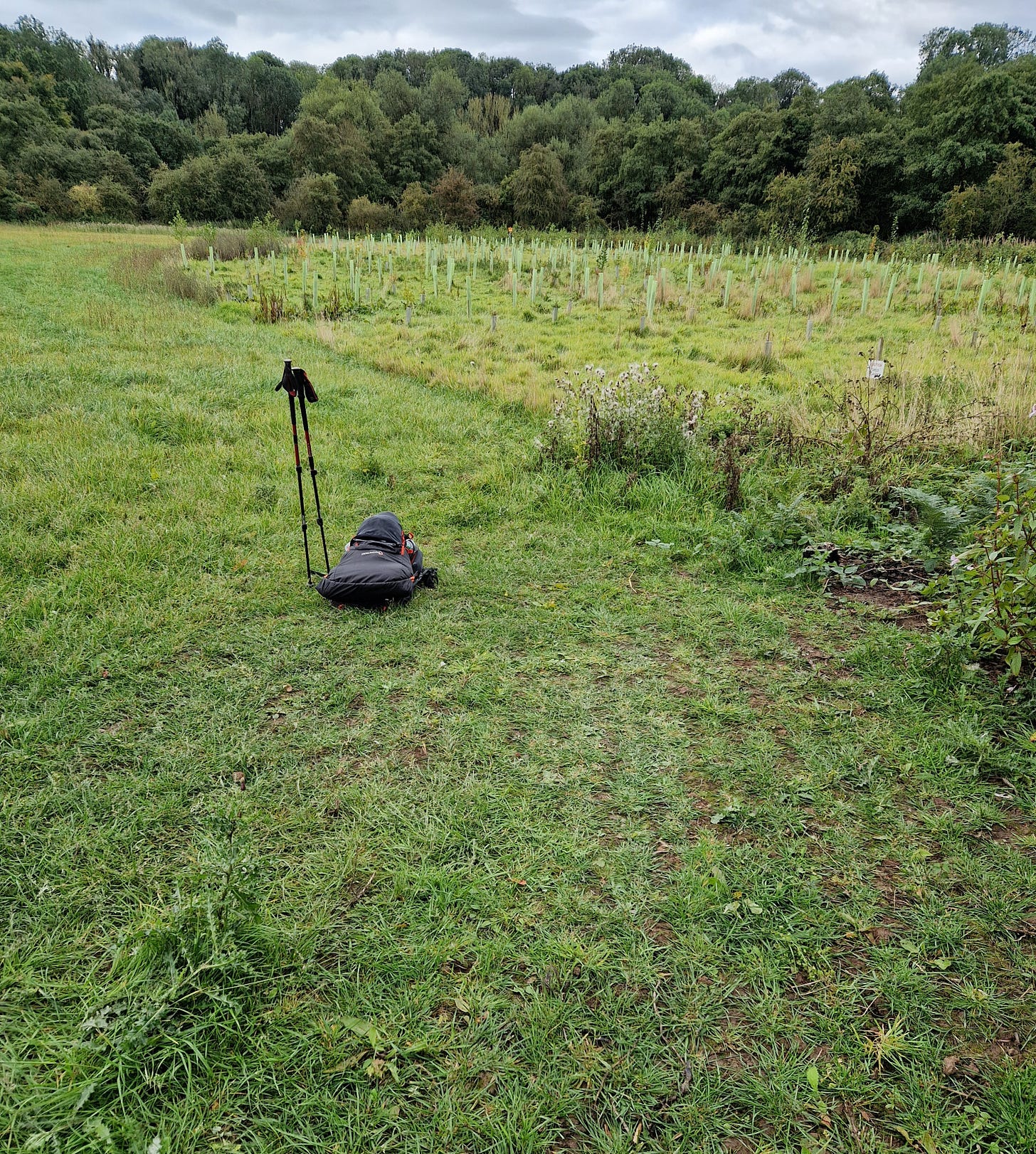
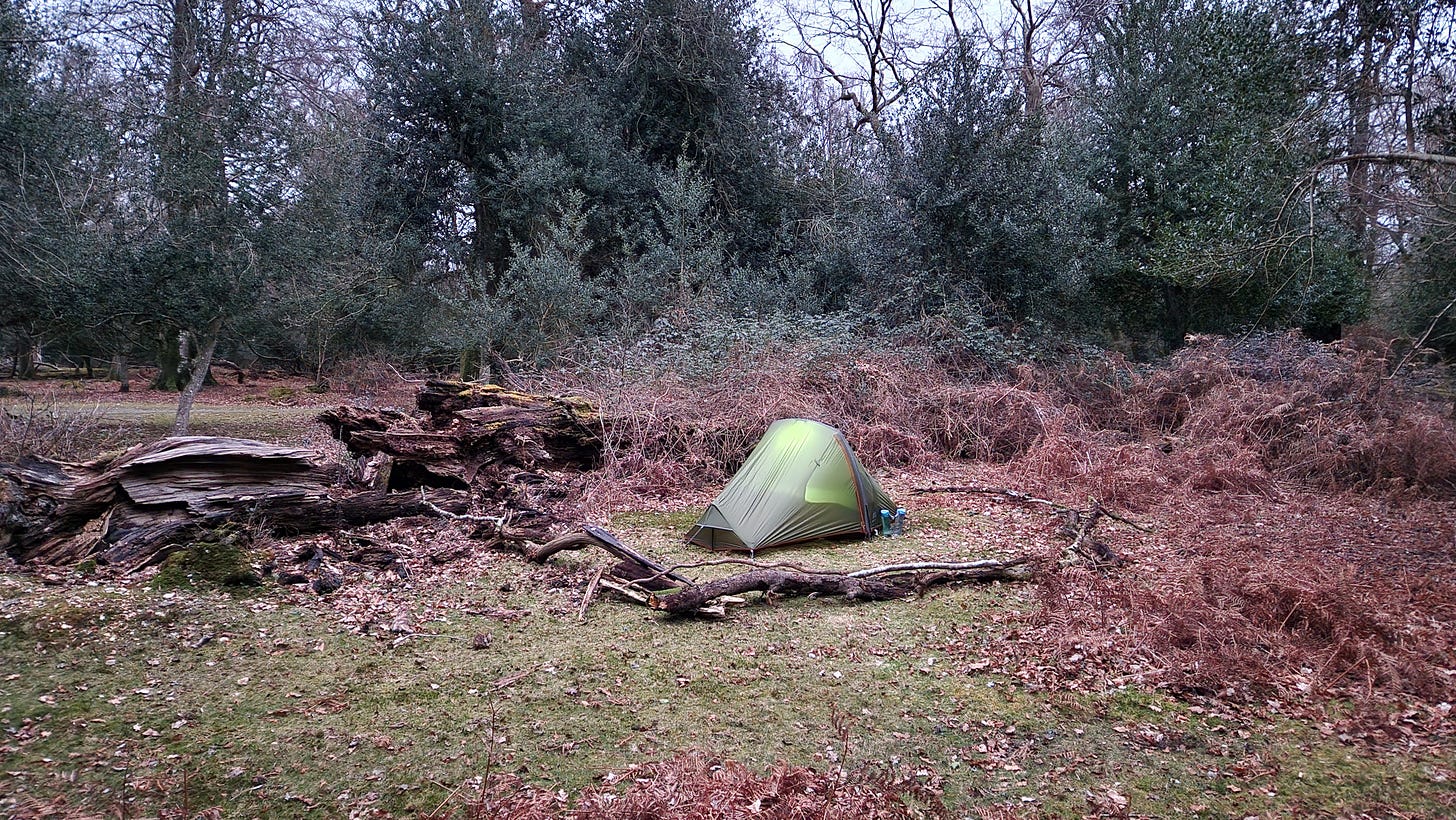
I've done this in France long ago without too much problem (loved it) but am wondering, in the UK, is" trespassing" on private land or in public parks not kinda illegal? Since I'm female, I opted for being very discrete about my sleeping site & set up at the end of dusk to further reduce attention to my presence. I avoided cowfields but maybe they aren't the worst option?
I lived on a farm for a while as a young lady, cows are just curious as the farmer said.
I have wild camped on your mapped area a few times off my bike. Just off your route is some toilets and benches that seem to be open all night and are hands for breakfast. I sleep, tent or tarp, elsewhere.